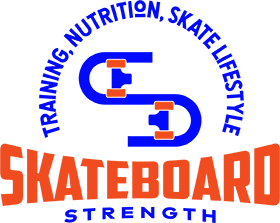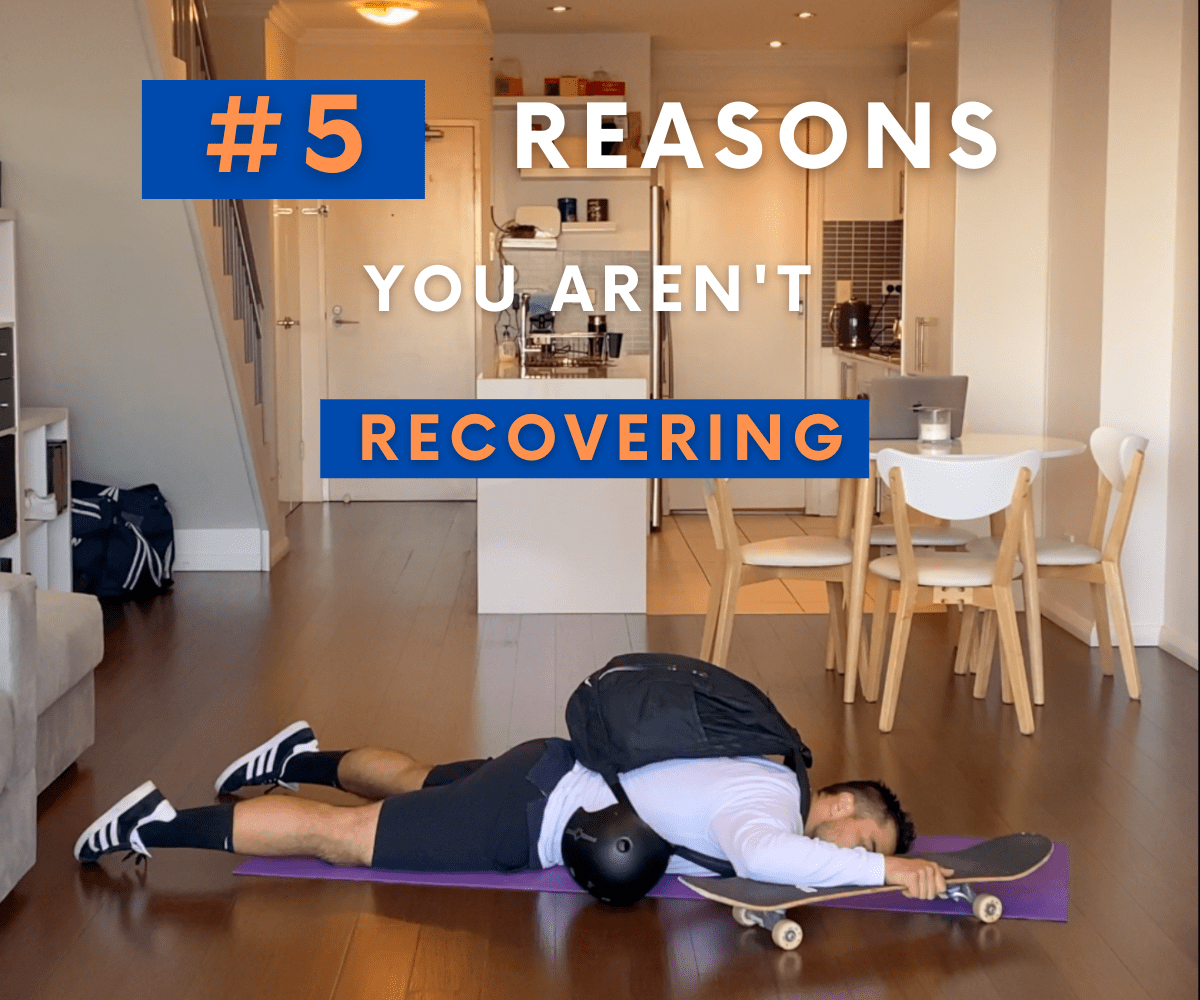When we get injured there is a tendency to want to do everything we can to get back on the board as soon as possible. It’s usually only at the prospect of facing time off the board that we really try and knuckle down and do everything we need to in order to get back our beloved skating time.
Unfortunately that enthusiasm can often work against us in not only looking in the wrong places for answers but often times trying to do too much. What we often fail to see is the bigger picture in what it takes to recover from an injury. We look far to closely at the exercises we get told will help us and fail to see all the other variables that will actually make the biggest difference.
This post is to shed some light on what I believe to be the most overlooked and most beneficial variables most skaters miss when looking to recover from injuries.
1: You could be exceeding your ability to recover:
It can be tempting to throw everything possible at an injury in the hope it recovers faster; for example, exercises, mobility, thera-guns, massage, etc. Unfortunately, the more stimulation we give an injury, the more our body has to recover from and it can only recover from so much stimulus.
It’s good to remember that injuries involve muscle tissue which are tired, sore, aggravated or have simply reached their limit. Whilst a good rehabilitation program that blends mobility, stability and strength will be integral in getting you out of pain, the best rehabilitation programs take rest and recovery in to account which is where the biggest leaps are made.
2: You might not be eating enough:
When recovering from training or an injury, we want our body to be in an ‘anabolic state’ where the muscle tissue is being repaired and adapted to be stronger and better able to handle the forces placed on it. This process needs to be fuelled properly (with enough food) to ensure that the appropriate remodelling of the muscle tissue can take place.
Without the right fuel, our body can struggle to regrow and repair muscle, instead getting stuck in a ‘catabolic state’, where muscle begins to break down due to the lack of energy coming into the body.
This is why ensuring we get enough good quality nutrient dense food in our diet is integral to fixing injuries.
A really helpful tip is to ensure you are not dropping weight whilst attempting to repair an injury. This will be a great way of knowing that the energy IN (food) matches the energy OUT (training) and your body is getting sufficient fuel to take advantage of the rehabilitation process. This also ensures we are able to stay in that anabolic state where muscle rebuilding can occur.
3: Not getting enough protein:
The most important macronutrient in the rebuilding process (see above) is protein. Protein is literally the building block needed to regenerate and repair muscle tissue throughout the recovery process which explains why we need so much of it. The problem is most skaters do not get enough.
A good starting point is to make sure you are getting 1.7g of protein per kg of body weight. This can be pushed as high as 2.2g per kg of body weight to maximise results.
For most skaters knowing how to measure this can be beyond their grasp of knowledge so to simplify things just aim to have a portion size of protein which each meal 3 times a day. From there adding a protein shake somewhere in the day can be that extra boost required.
4: Your sleep is shit :
Sleep is crucial for the body to recover and repair itself. During the night bones are fortified, muscle cells and tissue is repaired and created and testosterone and growth hormones (GH) are produced. Most people experience not enough, or bad quality sleep leading to prolonged recovery from injuries or just impaired mental and physical performance. Fixing your sleep with the following tips will be one of the best hacks you can do to see the benefits on your board:
- Aim for 7-9 hours of sleep a night. If you are way off, set a goal to increase your sleep by 30 minutes every week until you hit the minimal target of 7 hours.
- Develop a night time routine. Minimise your screen time by shutting off screens (yes, even your phone) an hour before you go to bed. The blue light from screens stops your body from producing a sleep-inducing hormone called melatonin which can then stop us from falling, and staying, asleep.
- Avoid caffeine in the afternoon. Sounds obvious, but caffeine keeps you awake! Caffeine has a half life of about 5 hrs. Meaning if you consume 40mg of caffeine at 4pm 20mg will still be present in your system at 7pm . It can also take up to 10hrs for it to completely clear your system. This severely impacts your quality of sleep considering the caffeine will impede the body’s natural process of trying to unwind in the evening leading to a restful nights sleep.
5: Your recovery approach is too random:
The final setback towards recovering from injuries is that your recovery approach is simply too random. An approach built from that exercise from the internet, plus the stretch off that dude at the park, plus that mobility tool loaned from a friend, underpinned by the ‘magic’ drink that is supposed to help recovery, is never going to be effective.
Giving yourself the best chance of recovery is having all of the points mentioned in this post come together in a cohesive environment to speed up your recovery. If you’re struggling with where to start, pick one thing to change this week and create habits that will last. This will ensure a sustainable healthy recovery that will get you back to your best on the board in no time.
Want to know more about recovery? When you sign up to the Skateboard Strength App we give you a 100PG PDF arming you with all the knowledge you will need for a lifetime of skate performance. Be sure to check it out 👊🏼

